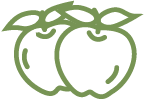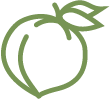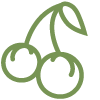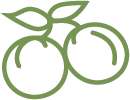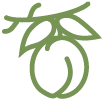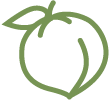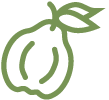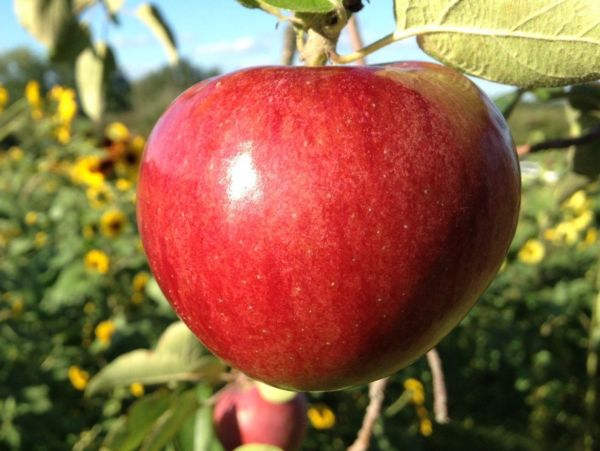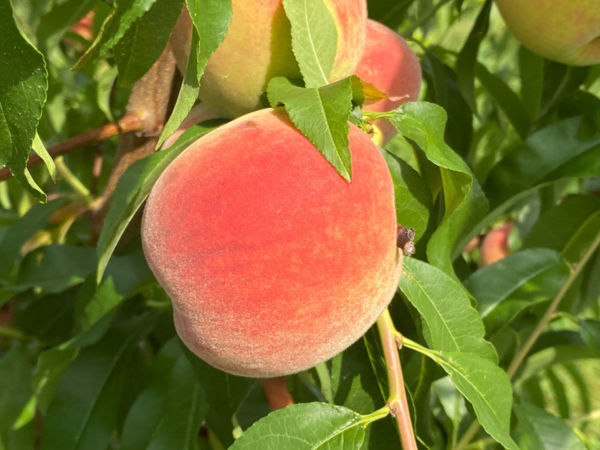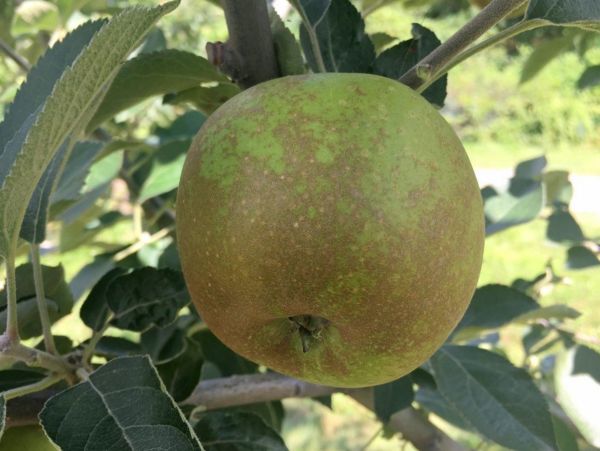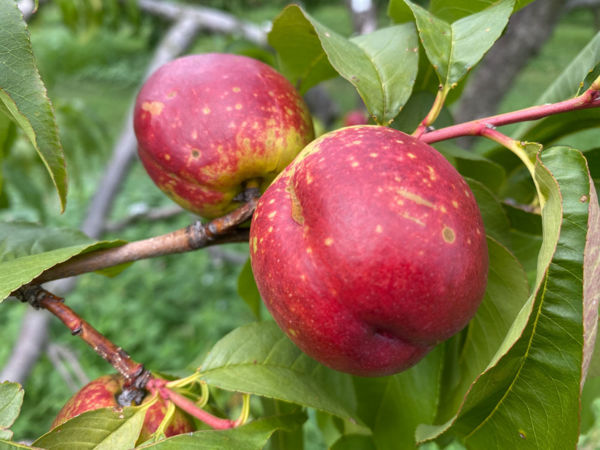An attractive, highly disease-resistant apple, ideal for organic growers.
Cortland Apple Scionwood (Spring 2024)
A very cold-hardy dessert apple that doesn't brown when sliced.
Cortland has an upright-spreading habit, and it is somewhat susceptible to the major apple diseases: cedar-apple rust, fireblight, powdery mildew, and scab. It is also susceptible to blister spot, but this is a cosmetic issue that will be of concern only to commercial growers. An extremely cold-hardy tree, it is widely grown in New York, northern New England, and the Great Lakes area.
This medium-sized apple is covered with a dark red flush over a yellow background. The flesh is soft, fine-grained, and juicy, and the flavor is sweeter than McIntosh, which is its mother. Cortland's most notable feature is that its snow-white flesh doesn't brown after cutting; this makes it an excellent apple for slicing into salads, fruit plates, or lunchboxes. It is also a favorite baking and sauce apple.
Cortland is a cross of McIntosh and Ben Davis, first produced in Geneva, New York and released in 1915. It was bred by S. A. Beach, who is also author of the venerable Apples of New York.
Volume Pricing
| Quantity | Cortland Apple Scion |
|---|---|
| 1 | $12.00 |
| 2-5 | $7.00 |
| 6-10 | $6.00 |
| 11-99 | $5.00 |
| 100+ | $4.00 |
The Fruit
Fruit Type
Category: Apple
Subcategory:
Cold-Hardy, Hot-Climate
Fruit Uses & Storage
Uses: fresh eating, baking, sauce
Storage duration: less than one month (approximate, depending on storage conditions)
Fruit Appearance
Skin color: red
Flesh color: white
Fruit Origins
Parentage: McIntosh x Ben Davis
Origin: Geneva, NY
Introduced in: 1915
Introduced by: S. A. Beach, NYSAES
The Environment
Calendar & Geography
USDA zones: 4 - 8
Chill hours: 1000
Ripening date: Sep 29 (approximate, in New York State) + 14 days after McIntosh
Diseases & Pests
glossary
Apple Blister Spot: Susceptible
Apple Scab: Susceptible
Brown Rot, Blossom Blight, Fruit Rot: Resistant
Cedar-Apple Rust: Susceptible
Fireblight: Susceptible
Powdery Mildew: Very Susceptible
Pollination
Pollination Factors
glossary
Bloom group: 3
Is it self-fertile? N
Is it fertile? Y
Ploidy: Diploid
Pollination Partners
This table shows the first few results from a full search for pollenizers of Cortland Apple. Please see our Pollenizer Search to run other queries and read how the application uses various factors. Also read more about fruit tree pollination.
| Tree | Currently in Stock |
|---|---|
| Florina Apple | 0 |
| Porter's Perfection Apple | 0 |
| Spitzenburg Esopus Apple | 0 |
| Virginia Crab Apple | 0 |
| Rubinette Apple | 0 |
| Binet Rouge Apple | 0 |
| Mother Apple | 0 |
| Bramtot Apple | 0 |
| Muscadet De Dieppe Apple | 0 |
| Repinaldo Do Liebana Apple | 0 |
| Melrose Apple | 0 |
See all pollination matches for Cortland Apple
Featured Products
A few things we're loving right now...
A full-flavored, freestone white peach.
One of America's oldest apples, good for storage, baking, and cider.
A widely-grown, large, yellow-fleshed nectarine.

